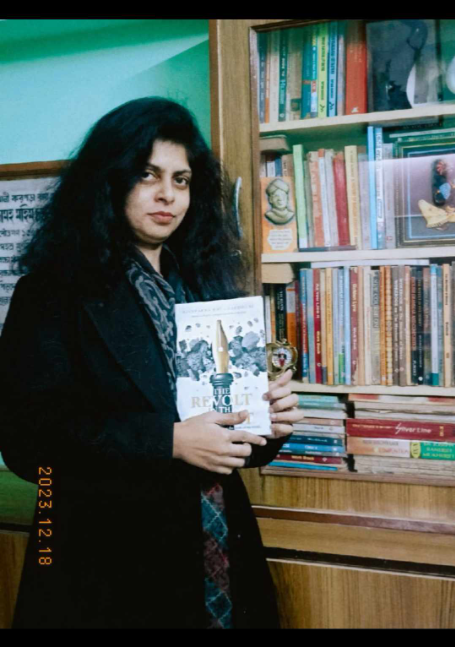The Interview - Rituparna Ray Chaudhuri
https://www.rituparnaraychaudhuri.com/
1. Two writers: one well-versed in Native Language, other still is exploring English. How do these two natures live together in everyday life of Rituparna?
You can never understand one language until you understand at least two. As an author I feel to be exposed, as it should be. Skill on any field is form of Art: At some point I became a successful Classical writer, and I’m grateful but when I write or when I try to write, I always feel uncomfortable. As such I need to dig, where I don’t feel comfortable. While writing I often ask myself where do I have to get to, what am I trying to leave behind?
2. How did you realize you wanted to become writer?
With time I had gathered experiences on transformation of metamorphosis, at least to try to. I do teach higher students to my private academy, it strikes me how my students, who are so young, know a thing about them already. I am much more confused at their age.
3. Can ‘The Revolt in the Desert: Journey on English Literature’ be classified on political-discussion?
The limits of my language are the limits of my world. You can never understand one language until you understand at least two. When great minds essay an important question, it is always interesting to watch their different turns of thought and expression. The book has its own uniqueness on ‘playing-chess’ at Literature.
4. Do you think you are The Modern Prometheus — and why?
Admittedly, a book club could get excited talking about The Modern Prometheus: “I had begun life with benevolent intentions, and thirsted for a moment I should put them into practice, and make myself useful to my fellow beings.”
5. What inspired you to develop abstract characters to your books?
I had earned self-realization on state of my existence: “Life, although it may only be an accumulation of anguish and hatred, is dear to me, and I will defend it.’’ I have always believed despite despondency and isolation, there is always an area that can be made fertile by source of freshwater in an otherwise dry and arid region. This is called oasis in the desert.




